Back to the tale of the Belgian Family Brewers press trip, which was 6 to 10 November.
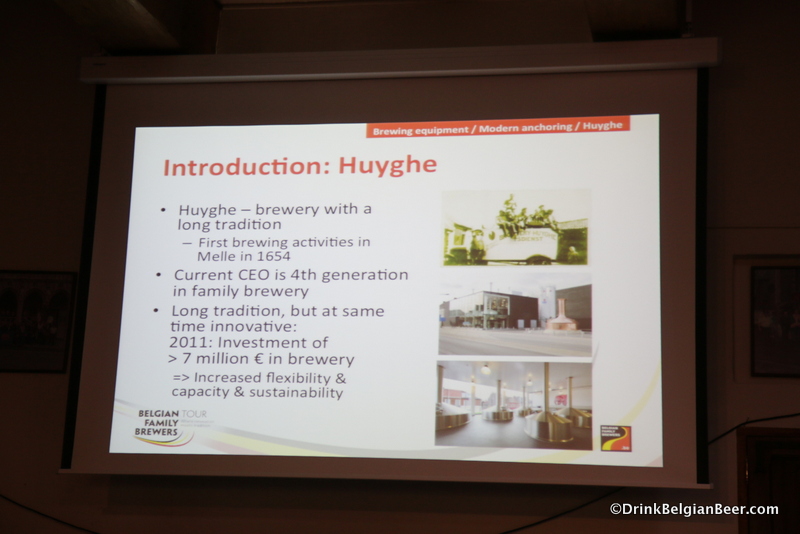
Thursday, November 7th was as dreary a day as the last few had been. “Typical Belgian weather,” as all the brewers, bar owners, and locals would say.
After 27 trips to Belgium, I can’t tell you how many times I’ve heard that phrase. More often than not.
The morning began with a fine start inside Brasserie Het Anker, the bar and restaurant of the brewery. It was completely remodeled in 2010. Guests staying at Hotel Carolus, just yards away, come here for their breakfast. (No, we didn’t start with a beer. We did that the night before. I forgot to tell you in Part 1.)

We then boarded the coach (that’s bus to us folks stateside) and headed in the direction of Ghent. Our destination: Brouwerij Huyghe, in Melle.

We were treated to presentations on Huyghe from owner Alain de Laet and brewer Filip Devolder; Brouwerij Verhaeghe, from Karl Verhaeghe; as well, there was a presentation on Brouwerij Van Eecke.
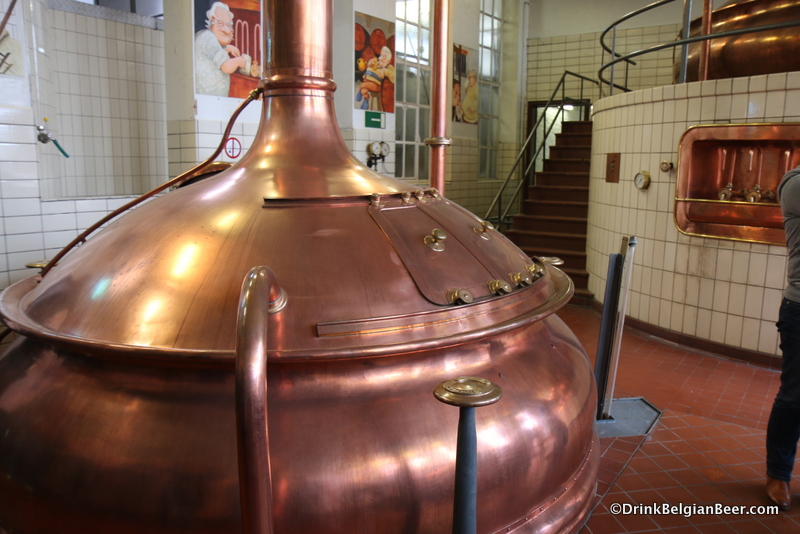
We then toured both the old and new brewhouses at Huyghe, the fermentation room, and bottling line. The group then returned for presentations on Brouwerij De Halve Maan by BFB President Xavier Vanneste, followed by a tasting of a couple of Huyghe beers, paired with cheese, including the interesting La Guillotine.
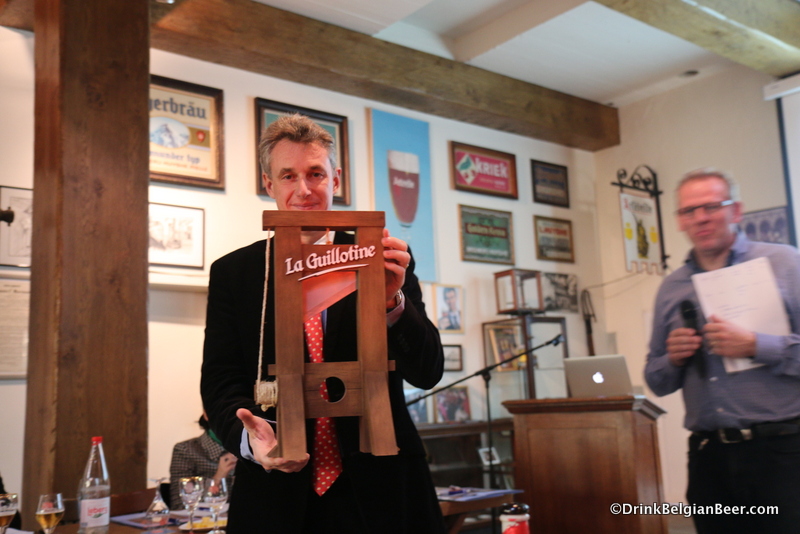
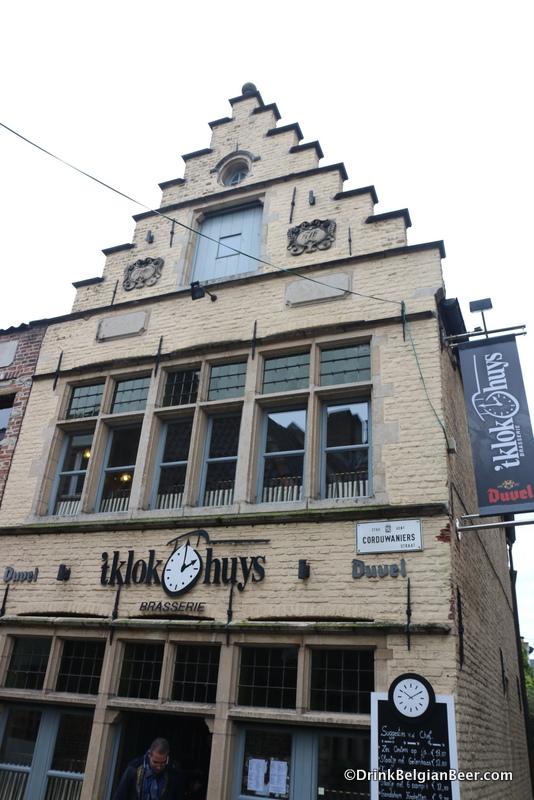
Lunch was in the center of historic Ghent, at Brasserie ‘t Klok Huys (The Clock House.) Ghent’s classic Waterzooi, a soup-like dish of chicken, potatoes, carrots, and green veggies was a good one. It was paired with Brasserie de Silly’s Abbaye de Forest. Future owner Lionel Van der Haegen gave a talk about the beer and brewery as we ate. I had visited the brewery in May 2008, and was glad to hear things are still going well.
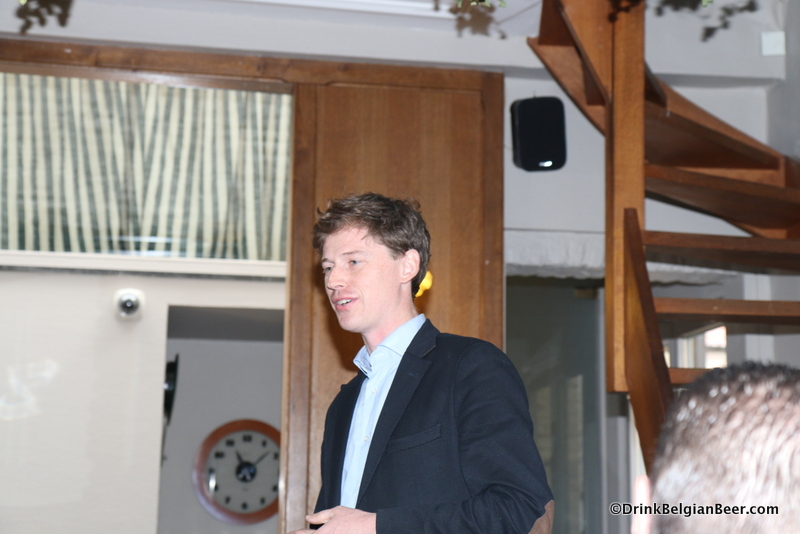
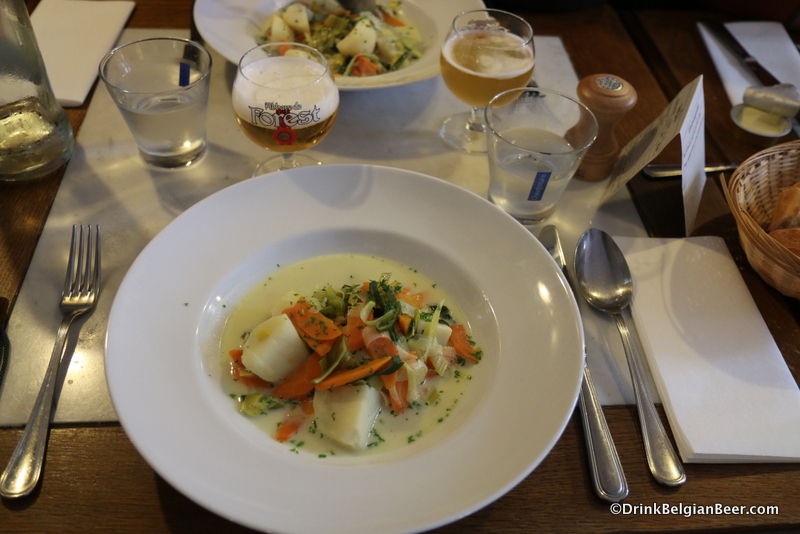
Next, it was time to head to De Dulle Griet, a beer bar that is a Ghent-and Belgian-institution, for two more tastings. Brasserie Lefebvre Owner Philippe LeFebvre and son Paul presented Barbar, and Karl Verhaeghe spoke about his Duchesse De Bourgogne as we savored it.
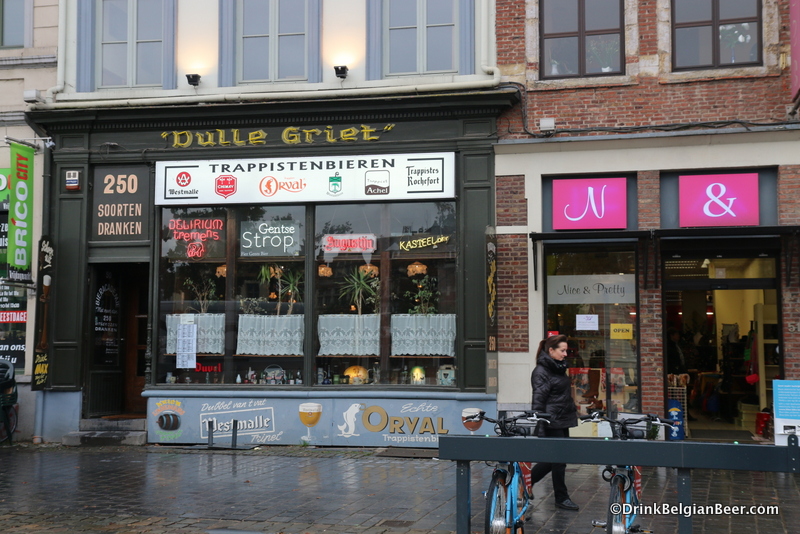
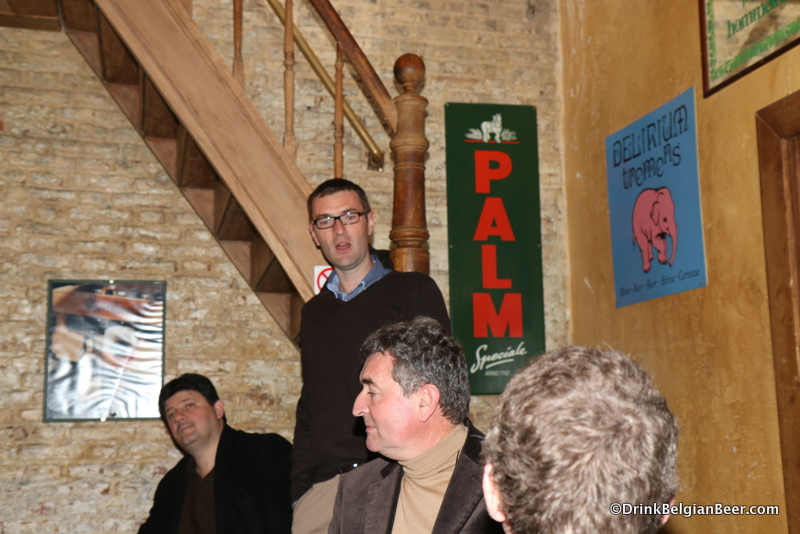
Next, we were quickly off to West Flanders, and Brouwerij Bavik in Bavikhoeve. As a lover of wood-aged beers, it was good to get back there for a second visit to the brewery and its Petrus Kelder, the maturation room where Petrus Aged Pale and Oud Bruin begin their journey to tartness. The “Rijpingskamer” currently holds twenty-one 220 hectoliter (about 187 U.S. barrels) foeders (huge oak barrels.)

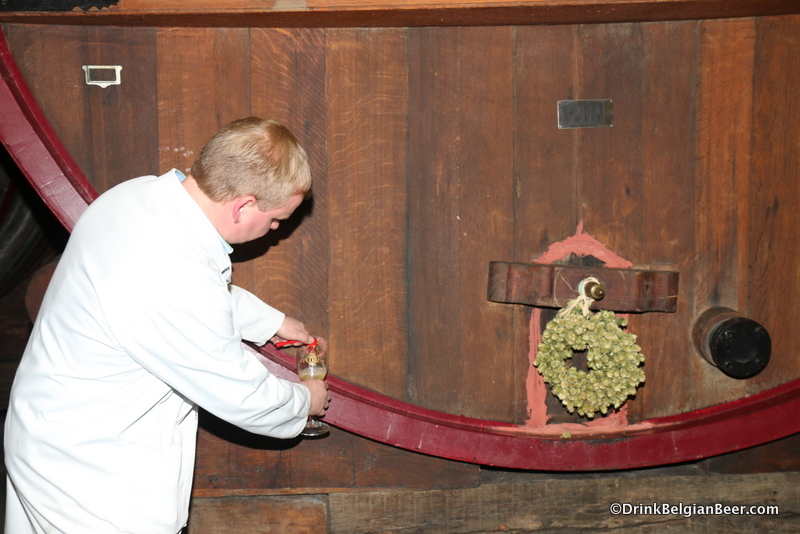
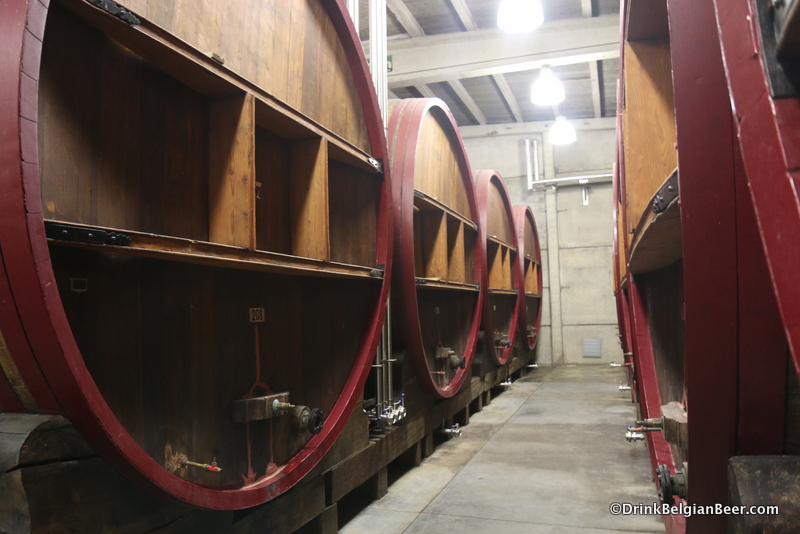
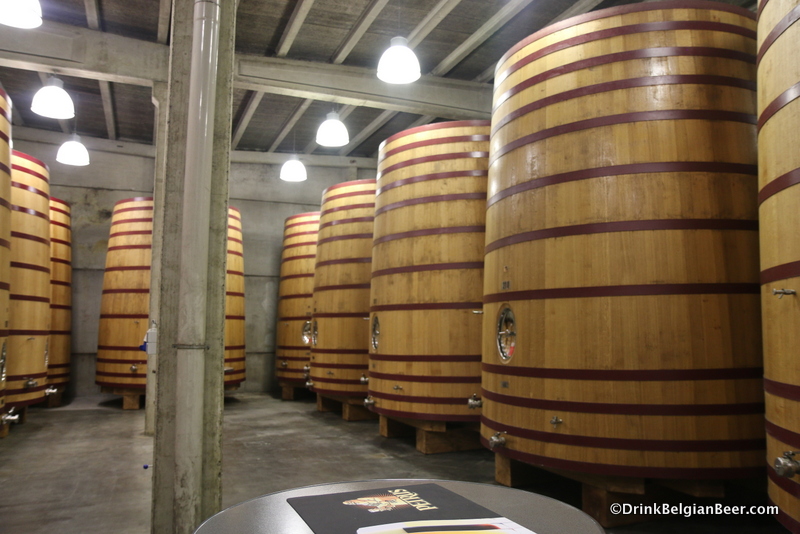
Glasses of the Aged Pale, drawn right from a Foeder, were beautifully tart and dry, just as on my first visit in 2008. This blond libation was appreciated by all was one of the more memorable moments of the trip.
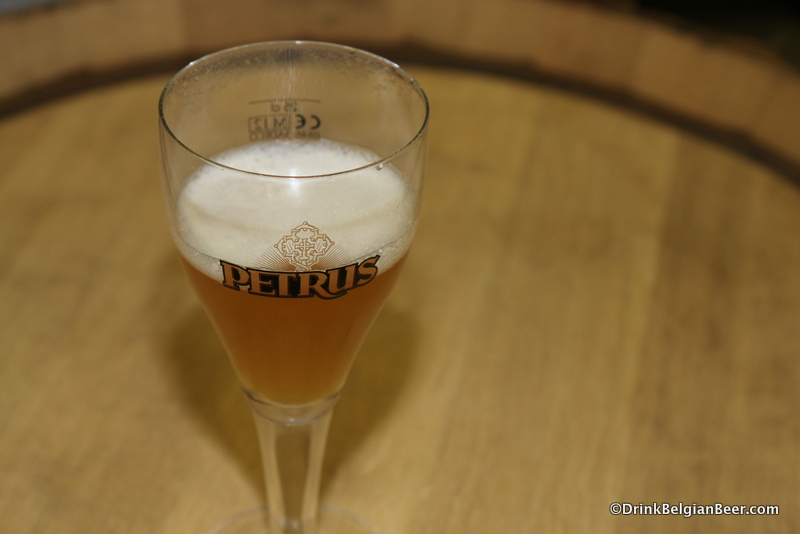
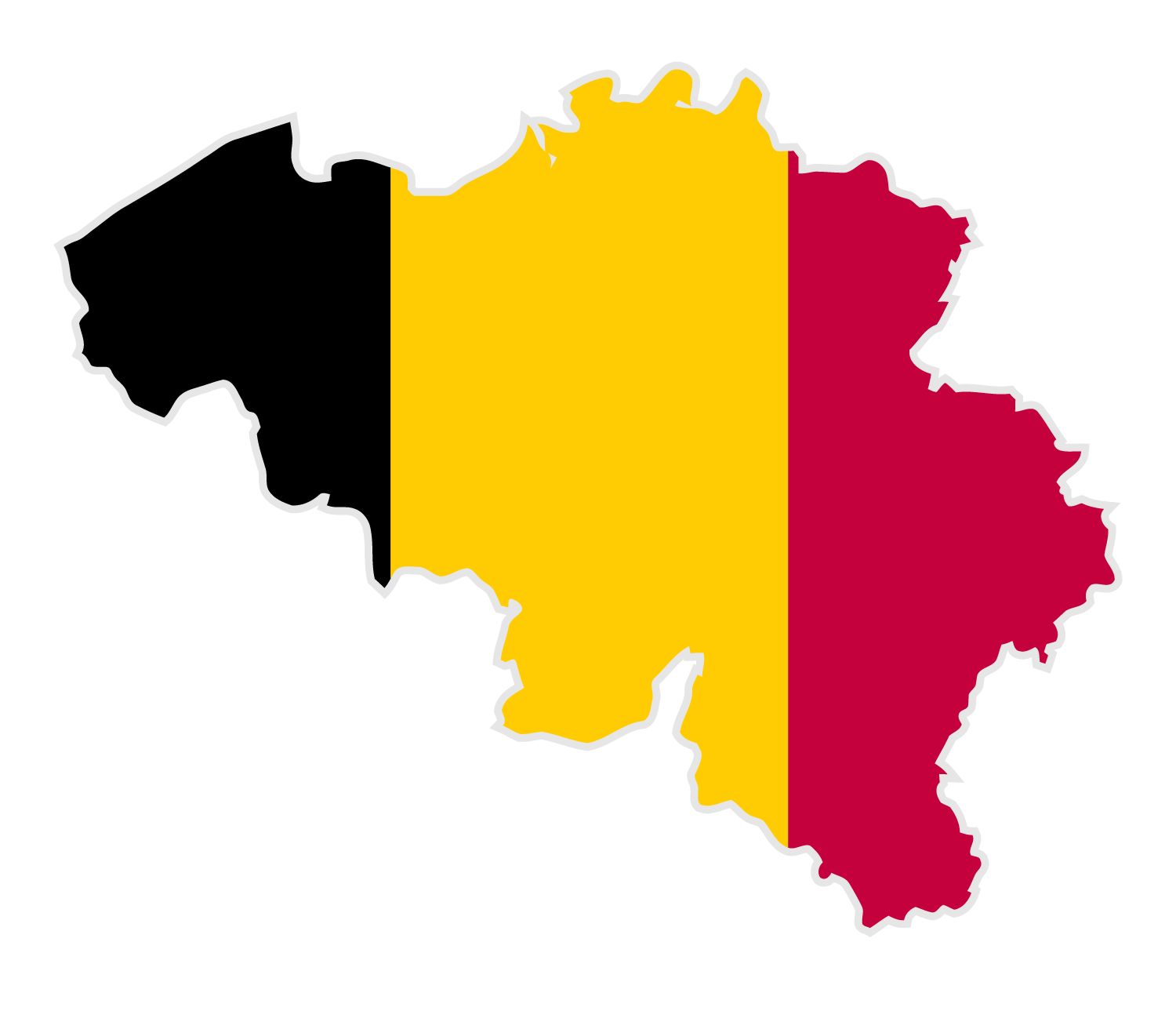
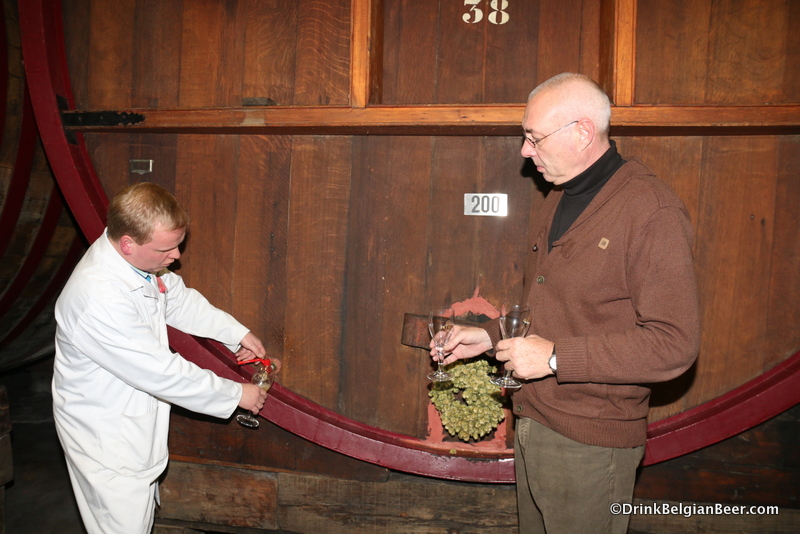
Leave a Reply